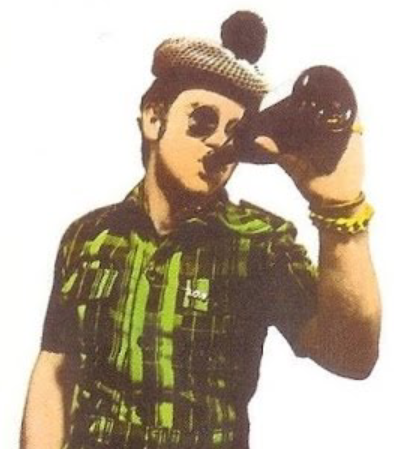I’ve been curious how many working researchers we’ve got in this community, and what you all do!
If you’re working in science (physical or social), engineering, etc in a research capacity, give a shout in the comments and let us know what you work on! Same goes for students and amateur scientists at any level. (And by amateur I mean those of you who are working on your own experiments but just not being paid for it / not working on a degree; I’m upset that “amateur” has a negative connotation, it shouldn’t.)
I’m currently a PhD candidate, working on transmission electron microscopy and electronic materials (mainly ferroelectrics). In the past I’ve been involved in research / product development in a few different industries, including medical devices, aerogels, and materials for RF devices.
I’m a PhD candidate too - my contract is finished now, but I am still writing my thesis. So I am currently at the awkward intersection of finishing a thesis and looking for a job.
My PhD focus is in applying time-resolved spectroscopic techniques to study the excited state dynamics of molecules. Basically, these are experiments in which a pulsed laser is used to excite the sample and a second probe light is used to measure a change in the absorption in response to the light. By measuring these changes in the absorption as a function of time, and applying quantum chemical methods to calculate the spectra of potential intermediates, one can sort of recreate a molecular movie of what the molecule is doing after it absorbs light with a time resolution of femto to picoseconds. The materials that I study are organic dyes that are useful for microscopy, as well as molecules that respond to EUV light for applications in photonanolithography (for making the very small transistors in computer chips).
I am also an “amateur” scientist when it comes to biology, as many of my hobbies are nature-based and it’s not like I can turn off the science bug when it comes to hobbies.
Well that’s fascinating! The technique sounds a little bit like a cross between Raman and EXAFS/XANES? (Probably just because those are two techniques I happen to be familiar with though.)
Raman and EXAFS/XANES are techniques to probe different types of molecular transitions. Vibrational raman probes molecular vibrations, and XANES probes electronic transitions due to excitation of core electrons. Each technique will help you obtain different molecular properties. The standard approach is to apply these methods to do “static” absorption studies, meaning that one studies the transitions induced by these light sources in order to obtain molecular information of a given sample. The time-resolved techniques expand these measurements along the time dimension, so you can measure these properties but in a sample that is changing extremely quickly in response to a trigger (usually light).
So, it is not that the technique is a cross between these, but rather an approach to take Raman, or XANES, or IR-spectroscopy, or UV/Vis absorption spectroscopy, and then apply it in a time-resolved manner. You can usually take any spectroscopy technique and add “time-resolved” at the beginning and you will find someone doing that. Of course, some techniques are easier to perform in practice than others. I have done some time-resolved XANES experiments, and for those we need to go a synchrotron and the experiment is really tricky. A time-resolved UV/Vis can be done in many university labs. I don’t have practical experience with Raman experiments.
That’s a really clear explanation, thank you!
I’m a research professor of neurology, and my research focuses on developing novel cognitive assessments for measuring early-stage Alzheimer’s disease and other types of dementia.
That’s a field where it seems (to an outsider) like a lot has been happening recently! Glad to have you here!
You’d be correct! The new anti-amyloid drugs are very exciting, and it makes my work on preclinical Alzheimer’s even more fulfilling as it can have a real impact on getting people tested and treated as early as possible.
It’s science-y enough but I’m definitely not considered a scientist so much as a technologist. I work as a MRI (Magnetic Resonance Imaging) Technologist. Previously a X-Ray Technologist.
My machine does all the science for me but it’s a pretty neat concept. Using magnetic gradients and RF pulses at hydrogen protons to acquire accurate digital imaging.
Happy to have you! The science behind MRI is fascinating, and the machines themselves are really cool. Have you ever seen a magnet quench? I don’t think they’re really supposed to happen during normal operation, but some of the videos I’ve seen have been rather dramatic.
It is pretty crazy people were able to figure that all out and we are able obtain crazy detailed pictures without radiation.
No I haven’t seen it! Hoping to see a controlled quench someday but also hoping to avoid needing to use it in any emergency situations; it’ll have to be a damn near life/death situation to hit that button. Very costly decision. I guess there’s also a dwindling supply of helium in the world so that could get interesting as time goes on.
Yeah, helium being a finite resource was something that really surprised me when I first learned about it! Better to keep it inside the MRI as much as possible for sure
helium recovery and recycling has come a long way, and the costs of helium are now justifying the extra expense of the hardware, so I think that problem should abate somewhat in the coming years.
PhD in Geology. Now am a research scientist working in more general materials science/chemistry/gas adsorption. My thesis was on lunar petrology where I studied Apollo 16 samples. My current research is much less exciting. Haven’t touched a rock in ages and my geologist heart hurts from it haha
I’m a software developer who works on Backend/APIs/Cloud/AI.
Currently browsing Lemmy instead of actually doing work in my home office…
Currently browsing Lemmy instead of actually doing work in my home office…
Some days just turn out that way lol
Development engineer working with autonomous vehicles.
Worst part of it is having to interact with Tesla bros who think that they have self-driving figured out despite what experts in the field tell them.
Best part of it is being able to code functionality then sit down inside an actual physical vehicle and see, hear, and feel it act out what you programmed. Incredibly satisfying.
That’s does sound satisfying!
I’m pretty thankful that I’m not in a field that gets too much public attention. I think people mostly think of electron microscopy as a bit like magic. I can imagine the kinds of interactions you might have; everybody knows how to drive a car, after all, so why can’t you just program it to do what they do?!
That said, I’ve got some ideas for how to… (/s)
PhD candidate, archaeologist in a physical geography department. I read dirt to reconstruct ecosystems over time.
That sounds like a really interesting field! I can’t even begin to imaging all of the complexities but the basic idea you put forward (“read dirt to reconstruct ecosystems over time”) is very compelling.
I’m a Mechanical Engineer who designs automation equipment. Basically lots of 3-6 axis robots, multi-axis gantries, various conveyance mechanisms, and other specialized automation equipment integration. Its fun because it is a job all about things moving from point A to point B.
That sounds like a pretty fun job, yeah! A bit like a real-world puzzle game, maybe? But presumably with more freedom to do what needs to be done to get things from A to B efficiently.
100%.
It’s kind of like designing Lego but with weldments, extruded aluminum, cylinders, servos, and any other number of components.
I work in mine closure. I create plans to re-integrate them back into the surrounding landscape, and provide valuable end land uses (not just those centred around ecosystem re-establishment).
That’s so cool! Sounds like an incredibly rewarding job. (Also I love visiting old mines that are no longer working but are open to the public for viewing. Always a cool experience.)
Social sciences, expert/consultant position. We have our own in-house research, and collaborating with them is always good fun
Cool! So like a company that consults out on social sciences issues for other companies, and you collaborate with your in-house research team to try to answer questions your customers have?
Yeah, kinda. It’s a non-profit providing research and offering consultation on the well-being of the population. We also have a service side that provides sexual education, family planning help and relationship counseling. The data from the service side is used in conjuction with wider population data to have a peek at societal trends etc.
I’m a PhD candidate in inorganic and biochemistry! Loving the chem representation here, and loving OP’s username.
@realChem I retired from being a chemical engineer in the environmental remediation of hazardous wastes and petroleum. Went sailboat cruising, and stopped along the way to teach high school chemistry four years. Now I volunteer with OpenAir Collective working on CO2 removal (from atmosphere, not point sources - later is called “capture” instead of “removal” for some reason). Without chemicals, nothing would exist!
I’m a PhD in chemical engineering and work in a testing laboratory for electrical engineering insulating materials. My dissertation was using predictive modelling (some data mining and machine learning, some more classical statistical methods) to estimate material properties from spectral data. I’m trying to combine a full-day engineering job with writing more journal articles in my spare time. Currently not going well but at least I’m not lacking for data!
Haha that sounds like it must be keeping you real busy! I’m currently spending most of my days writing and it takes up so much time on its own I can’t imagine trying to combine that with a full time job. More power to you!
I see from elsewhere in the thread that you did chemical engineering as an undergrad so – hi, colleague! :) My PhD took a very long time to finish and I would never ever recommend combining industry with academia. I’m a masochist I guess.
Have you done any work with liquid ferroelectrics (e.g. https://doi.org/10.1016/S0304-8853(99)00066-9)? Those were all the rage in my field because they were expected to enhance convection cooling and the dielectric properties of liquid-cooled equipment significantly. Then they just… fizzled out.
I’m a staff bioinformatics scientist at an academic institution, got my PhD a few years ago and wasn’t interested in a postdoc. I get to work on a huge range of research questions and lots of different technologies. It’s great!
Sounds cool, do you have any tips on what kinds of skills you need for a bioinformatics position? I have a background in biology, but some CS knowledge I have learnt myself, programming (unfortunately mainly python for now), linux, deploying stuff with docker, etc.
Oh that’s rad! What’s it like being a staff scientist at an academic institution? I’m still trying to figure out exactly what I want to do after I graduate – I know I’m not interested in pursuing the tenure track, but I haven’t decided if I should go back into industry / look into staff science positions national labs / etc.
It has its pros and cons — I work on lots of projects and help with parts of grant writing, but I’m not the one guiding the big research goal/question (I appreciate that the questions are interesting but don’t care that much about the question usually). Because I work on so many projects I usually only have <1 full day a week to work on each one, so progress can be slow and managing expectations can be challenging. I am paid more than a postdoc but less than I would in industry. It is expected that I will mentor undergraduate students and teach workshops. These things might make a big difference re: how much you enjoy the job. Folks in this type of position are sometimes called research software engineers: https://society-rse.org/
PhD student working in reinforcement learning (the branch of machine learning, not the neuroscience kind). Trying to figure out how to make more general agents, and I’m hypothesizing that making things bigger is a key ingredient.
Bigger seems to have helped so far, yeah, with things like GPT3.5 being based m some really massive models iirc? Happy to have you around!










